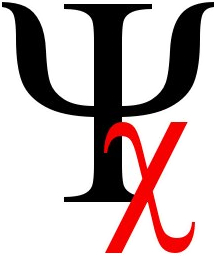Breaking the Fourth Wall and the Fourth Voice
A Letter from the Managing Editor
Well, we don’t actually speak that much Finnish or Estonian around these parts, so we don’t really get a lot of fourth voice action, but boy howdy we do love breaking that fourth wall. Did you notice, Dear Reader? Huh? Didja?
|
|
 Sandro Nielsen, 2013, “The Future of Dictionaries, Dictionaries of the Future”, in The Bloomsbury Companion To Lexicography, Bloomsbury Publishing.
Sandro Nielsen, 2013, “The Future of Dictionaries, Dictionaries of the Future”, in The Bloomsbury Companion To Lexicography, Bloomsbury Publishing.
Chiasmus of the Month
January 2014
|
|
|
|
|
Getting back to the use and abuse of voices specifically, and syntax in general, this month’s issue of SpecGram features a wonderful article that continues a long—if somewhat tenuous and admittedly sparse—tradition, comprising the following:
- An excellent article on the passive voice was written by Joel Boyd. (Ps.Q. XVI.2, 1989)
- Claude Searsplainpockets wrote-wrote-wrote with astounding eloquence (yeah! yeah! yeah!) about the hyp-hyp-hyperactive voice. (SpecGram CXLVII.4, 1993)
- Yreka Bakery an article a stunning speech disorder center embedding was caused by described wrote. (SpecGram CLI.2, 2006)
- He is Edmundly, C.ly, Gladstone-Chamberlainly; he exists authorly to it; it exists articlely; it exists movingly; it exists adverbially. (SpecGram CLII.γ, 2006)
- An article about center-embedded passives by Küçük Kaynaranyak Küçük wrote by Küçük Kaynaranyak Küçük about center-embedded passives an article. (SpecGram CLIII.4, 2008)
And now in this issue, an article on middle voice writes interestingly for Babylon J. Middleton! (N.B.: This article should not confuse with the middle finger for alert readers.)
By the way, this article itself serves an additional diagnostic purpose: if you made it through all of the above without your eyes glazing over and without losing consciousness (oh, a warning—you should be seated while reading this article: we lost two interns to head trauma after they passed out while reading it standing up, and now the Sociolinguistics and Descriptive Linguistics departments are in mourning), then you might consider a lucrative productive instructive obstructive inductive “interesting” career as a syntactician. Succeed you will!

